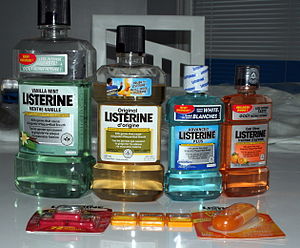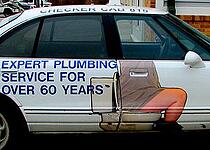The Secret Language of Advertising Claims
We have been looking at advertising and the needs an item is supposed to fulfill. Now it’s time to look at the language of advertising claims. This is a hot topic because advertising affects sales much more than people think it does. We know advertising works because we can statistically study the results through surveys and sales figures. That most people don’t think they are influenced by advertising shows how naïve people are and how well advertisements work below the radar.
This series of ideas come from Jeffrey Schrank’s handout found at http://home.olemiss.edu/~egjbp/comp/ad-claims.html which comes from Schrank, Jeffrey. “The Language of Advertising Claims.” Teaching About Doublespeak. ed. Daniel Dieterich. Illinois: NCTE, 1976; the Second Edition of Point Counterpoint: Eight Cases for Composition, edited by Thayle K. Anderson and Kent Forrester. Fort Worth: Harcourt Brace Jovanovich, 199; Scott Bennet’s site: http://www.horton.ednet.ns.ca/staff/scottbennett/web/ads/adclaims.html; and The Language of Advertising, Peter Sells and Sierra Gonzalez http://www.stanford.edu/class/linguist34/index.htm, just to name a few. If these are not credited correctly, the fault is mine.
If you like looking for how businesses try to fool you in mail-outs or email, you are going to love looking at ads in some new ways. We will explore some questions to ask as you watch television or see advertising anywhere you are. If you have been caught up in the advertisers’ hoax that ads are childish, bunches of lies, for dummies or to influence the teeming masses of those less sophisticated than you are, I intend to show you things that will open your eyes to your own lack of sophistication.
If you are in the advertising business, I will show you what is being done, what is wrong with it; and you can figure out how you can advertise, if you want, in an ethical manner.
For now we are going to look at the simplest portion of ads: the “claim”, the print or verbal part that claims the superiority of the advertiser’s product. First of all, few ads are totally lies, some are honest statements of truly superior items; but most are neither completely lies nor useful consumer information. They walk the thin line between truth and lie with a careful choice of words.
They walk this line for the simple reason that they are comparing their product to others that are about equal to theirs. Since there is no superiority, they create an illusion of superiority. You can bet that products like gasoline, cigarettes, beer and soda, cold remedies, headache remedies and soaps are all pretty much alike.
Shrank calls this alikeness “parity”. There are two rules he starts out with involving parity.
The first rule involved the words “better” and “best”. In parity claims “better” means “best” and “best” means “equal to”. Keep this in mind. For example, legally if all the products are the same, they are all equally good. Therefore, “best” means that the product is as good as the other superior products that are in the same group. If Bing Crosby (an old, dead singer/actor) said that Minute Maid Orange Juice is “the best there is” he meant that it is a good as any of the other orange juices you could buy.
Legally the word “better” is comparing two products and the one in the ad has a clear claim to being superior. So Bing could not have said that Minute Maid is “better than any other orange juice”. This would mean that it was superior. So “better” will only be used if the product truly is superior to other similar products or when compared to something that is not a competing brand. Huh? We could easily make the claim that orange juice is “better than a vitamin pill” or even “the better breakfast drink”.
Rule two of ad claims is that if a product is truly superior, the ad will say that and offer some kind of proof. If an ad sort of says that the product is superior to the competition, chances are it’s not superior although it could be equal. No gas company offers “we will give you four miles per gallon more than some other brand”. They might wish they could make the claim, but we all know that’s not true. In fact all gasolines are parity products.
Have you ever noticed the odd use of “better” and “best” in advertising? Spend a few days looking for it and please send me some of the ads you found that use those terms in the comment box below.
Jaco Grobbelaar, owner of BroadVision Marketing, helps business owners and business professionals put marketing strategies in place that consistently secure new clients. He can be reached at jaco@broadvisionmarketing.com or 707.799.1238. You can “Like” him at www.facebook.com/broadvisionmarketing or connect with him on www.linkedin.com/in/JacoGrobbelaar.
Related articles
- Glittering generalities (virtuallinguist.typepad.com)
- In your face, Reebok! (angryoldbiddy.wordpress.com)
Share this
Previous story
← Addicted to ads: Part 3 of a three-part discussionNext story
Misleading Advertising Claims-Buyer Beware →You May Also Like
These Related Stories
Being Conned by Misleading Advertising Claims


Being Conned by Misleading Advertising Claims
Thu, Oct 13, 2011 @ 07:44 PM
4
min read
Misleading Advertising Claims-Buyer Beware


Misleading Advertising Claims-Buyer Beware
Tue, Oct 11, 2011 @ 09:21 PM
4
min read
Media and Advertising over the Internet


Media and Advertising over the Internet
Thu, Sep 29, 2011 @ 09:36 PM
3
min read



No Comments Yet
Let us know what you think